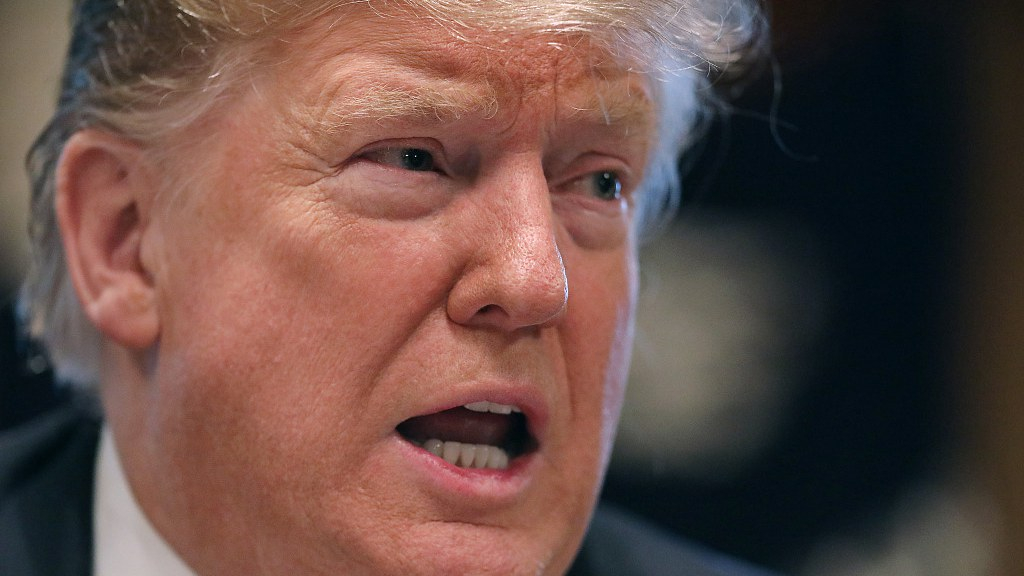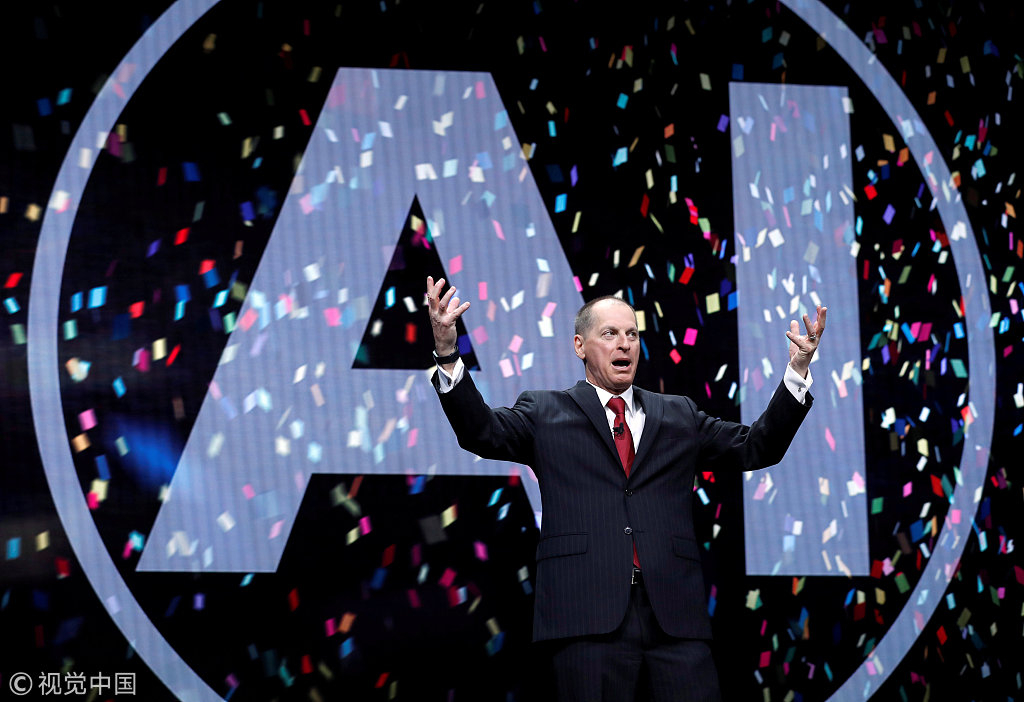
Opinion
18:02, 13-Feb-2019
Think Trump's unfair AI initiative first before bashing China
Updated
21:36, 13-Feb-2019
Liu Jianxi

Two years after China laid out its plan to become a pre-eminent AI (artificial intelligence) country, U.S. President Donald Trump grabbed this week's headline by signing an executive order, described as American AI initiative, calling for the devotion of the "full resources of the federal government" to fuel AI innovation.
Launched amid the brewing Sino-U.S. trade war, the initiative was immediately thrust under the media limelight. "Its [the AI initiative's] broader significance lies in his [Trump's] administration's recognition that China has become a strategic competitor in a critical technology," South China Morning Post reported.
NBC News is more straightforward. "Trump's artificial intelligence order lacks funding but not a target – China,” NBC said in its headline. The article further quoted Theresa Payton, U.S. chief information officer under former president George W. Bush: “It's kind of a new arms race."
Western politicians and scholars are never stingy in their “China threat” rhetoric. They never seem bored with hyping Sino-U.S. competition in high-tech industries including 5G Internet and the AI. This is a typical Cold War mentality that is no longer adaptable in the cooperation-themed era.

Gary Shapiro, president of the Consumer Technology Association, speaks on artificial intelligence at the 2019 Consumer Electronics Show in Las Vegas, Nevada, the U.S., January 8, 2019. /VCG Photo
Gary Shapiro, president of the Consumer Technology Association, speaks on artificial intelligence at the 2019 Consumer Electronics Show in Las Vegas, Nevada, the U.S., January 8, 2019. /VCG Photo
Indeed, China has seen rapid advancement in its AI capabilities, but this has nothing to do with the so-called pursuit of hegemony. China's endeavors in using robotics to boost productivity, enhance the quality of local products and lift the country's industries up in the global value chain have nothing to be hyped about.
Moreover, experts believe that the AI technology touches every aspect of people's lives with its benefits profiting every part of the global economy, just like the adoption of electricity, and therefore the competition in it does not necessarily end up in a zero-sum game.
Basking in its status as a superpower for decades, the United States is vigilant to any potential challenge to its dominance. It is always reluctant to accept the rise of emerging economies and the bare fact that an absolute advantage is impossible in the multipolar world. This is the fundamental reason for the overwhelming China-threat tone in the West.
By devoting "full resources of the federal government" to boost AI technology, the United States is slapping itself in the face. Washington, for years, has been bashing Beijing's manufacturing plan, which is also a lightning rod in the ongoing Sino-U.S. trade spats, and criticizing the state's role in the Chinese economy. But U.S. President is ironically utilizing the state resources to fuel the AI development.

A researcher works on his artificial intelligence project to train robots to autonomously carry out various tasks, at the Department of Artificial Intelligence in the Faculty of Information Communication Technology at the University of Malta, February 8, 2019. /VCG Photo
A researcher works on his artificial intelligence project to train robots to autonomously carry out various tasks, at the Department of Artificial Intelligence in the Faculty of Information Communication Technology at the University of Malta, February 8, 2019. /VCG Photo
The United States has been adept at adopting double standards to its own benefit. While this so-called traditional bastion of the market economy has been firmly opposing China's state "control" in the economy, it is wantonly trampling on the market rules by restricting technological exports to China, stifling China's manufacturing plan and even fabricating excuses for its state intervention in the market – "China threat" theory this time.
As U.S. Trade Representative Robert Lighthizer and Treasury Secretary Steven Mnuchin have already arrived in Beijing for a new round of trade talks, it is high time that the United States should face China's rise squarely and abandon its unfair practices against Beijing.
China welcomes the United States' AI development and is very willing to cooperate with it in this regard. In return, American elites must learn to understand that cooperation, instead of confrontation, is a solution to challenges and a balance among major powers is prerequisite to sustaining peace and stability.
(If you want to contribute and have specific expertise, please contact us at opinions@cgtn.com.)

SITEMAP
Copyright © 2018 CGTN. Beijing ICP prepared NO.16065310-3
Copyright © 2018 CGTN. Beijing ICP prepared NO.16065310-3